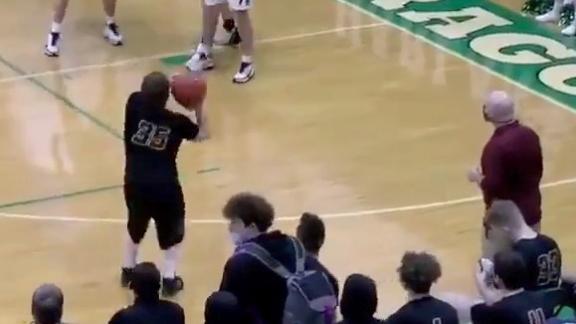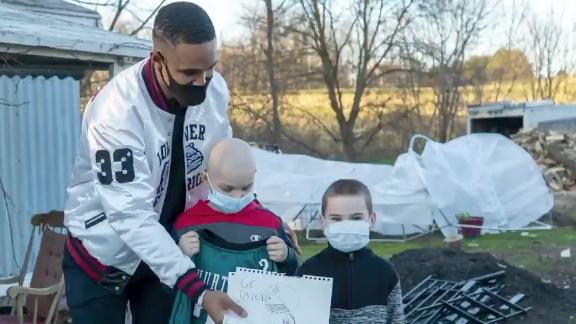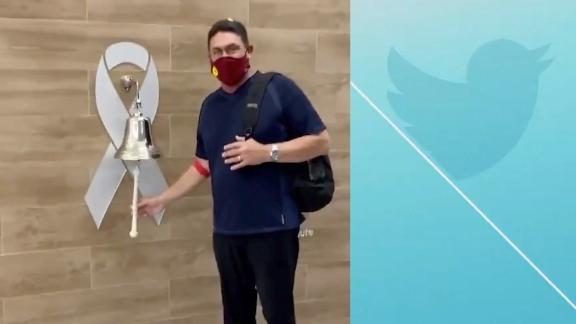WILMINGTON, Del. -- There may be no stranger position for an athlete than being an Olympic alternate.
It means you didn't make it. It means you almost made it. It means you aren't competing in the most prestigious event in your sport, one that only comes around once every four years, but you have to stay ready just in case. It is a big, fat, closed oyster of disappointment with a tiny seed pearl of hope inside, and the only way to deal with it is to maintain a professional attitude.
I've often wondered what it would be like to occupy that particular piece of sporting limbo, so I ventured down to the Skating Club of Wilmington to talk to Ashley Wagner.
Wagner was third at last month's U.S. national figure skating championships behind Rachael Flatt and Mirai Nagasu. In most other Olympic years, she would have been on her way to Vancouver -- in fact, the United States has brought at least three women to every Winter Games since 1928 except one, the Tonya-Nancy circus of 1994. The third slot was lost due to subpar finishes at last year's World Championships.
Yet you won't find a hint of just-my-luck in the composed 18-year-old, who was born in Germany and has lived everywhere from Alaska to Virginia with her military family. She lived with her coach, Priscilla Hill, this season and was mentored by 1998 Olympic gold medalist Tara Lipinski. It was a year of self-initiated growth.
"This season I moved out of my parents' house and I've become financially independent," Wagner said, sitting in a warming room next to the rink. "I wanted to make sure that I was skating for myself. It made everything a lot easier. I was responsible for my own actions. So, in the short program it was easy for me to say, 'I fell on that [triple] Lutz. It was a fluke, it happened and I'm going to have to move on.' There was no sense in dwelling on it. That mentality really helped me this season."
The entire mid-Atlantic region was bracing for a blizzard on the day we visited. Some forecasts called for six inches of snow, some for two feet, depending on the whim of the wind. Wagner's situation will be equally fluid for the next several weeks. She and Hill have made sure she stays in shape and prepared for several different scenarios, including the remote possibility of being called to Vancouver because of an injury or illness (as Emily Hughes was in 2006 when Michelle Kwan decided she was too hurt to skate).
Wagner's fall in the short program at nationals dropped her to fourth, but she fought back to a second-place finish in the free skate and admits she was "completely distraught" at first when she learned she had not been named to the Olympic team. There was a certain amount of suspense in that hour-plus wait before the verdict came in. Despite her overall third-place finish, the federation officials making the selection were obligated to consider international results this season. Wagner won silver and bronze medals in Grand Prix events last fall and finished fourth in the series final, and dared to hope that might trump her fateful tumble in the short program.
The waiting experience was not enhanced by a reality-TV spectacle in which the three teenagers were posed on camera sitting together holding cell phones and waiting for text messages (or the lack thereof) that would give them thumbs up or down. Wagner visibly shuddered at the memory.
But she said she's been able to shake off the blues since. "It's definitely difficult, because you've been training for one specific thing for so long," said Wagner, who conceded she didn't understand the stress of an Olympic season until she'd been through it herself. "But then I took some time to realize how much I accomplished this season, how far I had come, and I knew it wasn't the end of the world."
Blessedly, she has something specific to train for. Wagner is still age-eligible for the junior world championships, where she has twice finished third, in the Netherlands in early March.
Beyond that, Wagner is also the first alternate for the senior world championships, and it's not uncommon for Olympic athletes to eschew that competition. Accordingly, she is training two versions of her long program -- the junior length (3 minutes, 30 seconds) and the full four minutes. She's also keeping up with her usual busy off-ice regimen of Pilates, ballet, modern dance, core conditioning and running. "That's what's worked for me all season, so there's no point in stopping it now," Wagner said.
Come the end of March, she'll go on a much-needed vacation, find an apartment and tackle the long-delayed project of getting her driver's license. Wagner plans to take summer classes at the University of Delaware, but she isn't through with the school of hard knocks and intends to compete for another four years.
"I'll be 22 [in 2014], and that's still a really good position to be in," Wagner said. "As long as I want to do it, I'm going to go for it."




